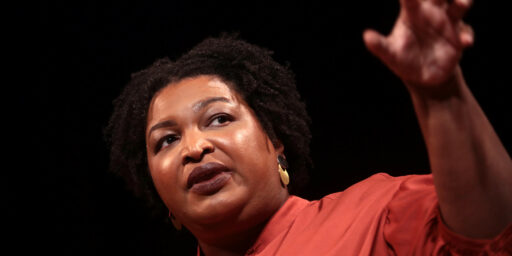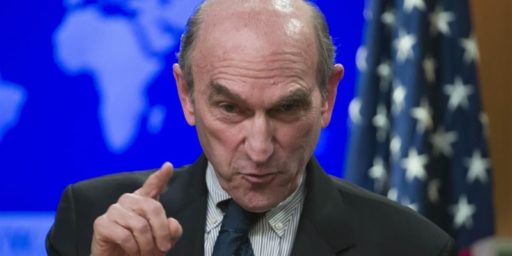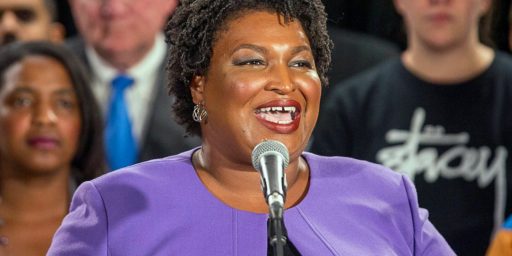Judge Orders Reporter to Do Story or Go to Jail
A Utah judge has ordered a reporter to produce a story to his specifications or face contempt charges.
A judge ordered a TV news reporter Wednesday to produce a public-service story as a consequence for airing an interview with a potential juror before the recent trial of a polygamous-sect leader. Fifth District Judge James Shumate had barred the news media from any contact with potential jurors until after the trial of Warren Jeffs.
Katie Baker of KUTV in Salt Lake City said she was unaware of the prohibition when she interviewed a woman outside the courthouse in southern Utah’s Washington County. The station aired her report Sept. 10, the second day of jury selection. “She violated the order,” Baker’s attorney, Jeff Hunt, told The Associated Press. “But she did that not knowing it was prohibited by the court. It was a mistake.”
During a hearing, Shumate accepted Baker’s explanation but gave her 90 days to complete a public-service story and provide a DVD to the court or be found in contempt, Hunt said. “It does bother me a little bit that he would order a reporter to do a story. … The station is reviewing its next steps,” the attorney said. Hunt said the judge did not explain what story would meet his public-service benchmark. Shumate’s office said a written version of the ruling was being prepared. “It’s unclear to us, frankly, and we’re looking for clarification on that,” KUTV news director Tanya Vea said. Baker could be jailed or fined if the judge holds her in contempt, Hunt said.
Floyd Abrams, an attorney and First Amendment expert, said Shumate’s decision was extraordinary. “The notion that a judge can either compel a journalist to write a story, or sit in judgment on a story to determine if it sufficiently serves the public interest, is extremely disturbing,” Abrams said in an interview from New York. “It puts the judge in a classic role of censor,” he said. “The judge is deciding whether the story is worthy or not – not even if it’s true but whether it’s worthy.”
While common practice, it’s bizarre to me that a judge can order reporters not to cover stories, let alone order them to cover one. The First Amendment prohibits Congress and the 14th Amendment (via incorporation doctrine) prohibits the states from abridging the freedom of the press; both acts would seem rather obviously to do that.
Further, I find the recent trend toward “creative sentencing” appalling. The idea that judges should have the authority to simply make up punishments ex post facto is frightening.






The court’s equity powers are extremely broad.
Note, too, the wording of the First Amendment:
There is no proscription on the court’s powers to limit freedom of the press when it acts in equity in that amendment.
How is this different from “Judge orders Kiefer Sutherland to do community service or go to jail”?
There isn’t a Constitutional amendment guaranteeing that government won’t interfere in community service.
But, actually, I don’t think judges should have the power to order community service absent conviction for a crime.
Once again, James, the Constitution doesn’t guarantee that government won’t abridge the freedom of the press. It says that “Congress will make no law”. Tain’t the same thing.
That’s certainly true as far as it goes. A couple hundred years of jurisprudence, though, he stretched it well beyond that, mostly by the Incorporation Doctrine via the 14th Amendment. That’s why, for example, local school principals or county school board’s can’t command sectarian prayers be conducted.
Obviously, judges aren’t going to constrain themselves by similar rulings. But we’ve created a very expansive view of the 1st Amendment that only judges seem able to disregard willy nilly.